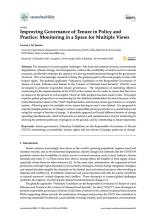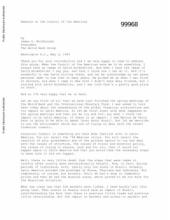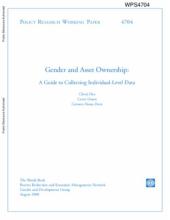/ library resources
Showing items 1 through 9 of 12.The dynamics of current global challenges—like food and nutrition security, environmental degradation, climate change, and emergencies—reduce the availability of and/or access to natural resources, and thereby underline the urgency of achieving transformational changes in the governance of tenure
The ongoing use of landscape-based conflict commodities — diamonds and other minerals, timber, wildlife, etc. — to finance wars continues to evolve.
The provision of public goods and the amelioration of market failure are the classical justifications for government intervention in the economy.
Recent international experience has shown that excessively complex administrative procedures, required to establish, and operate a business, discourage inflows of foreign direct investment.
James D. Wolfensohn, President of the World Bank Group, reassessed the global financial architecture and its impact on Latin America. Latin American countries, being small economies, are very vulnerable to world pressures.
This paper explores how the private sector can positively contribute to peace-building and conflict prevention, and how that positive private sector role can be supported and enhanced.
Brazil grew 2.4 percent per year on average in the last 25 years-somewhat less than Latin America, a good deal less than the world, far less than the emerging countries of Asia in the same period, and indeed far less than Brazil itself in previous decades.
Ownership and control over assets such as land and housing provide direct and indirect benefits to individuals and households, including a secure place to live, the means of a livelihood, protection during emergencies, and collateral for credit that can be used for investment or consumption.
Pagination
Land Library Search
Through our robust search engine, you can search for any item of the over 73,000 highly curated resources in the Land Library.
If you would like to find an overview of what is possible, feel free to peruse the Search Guide.








